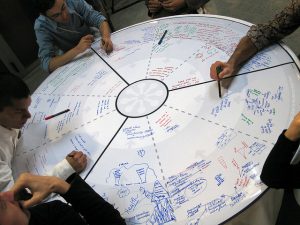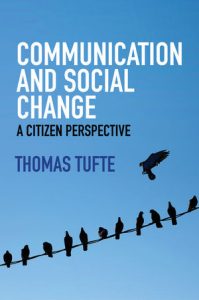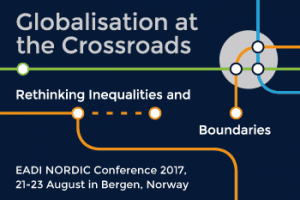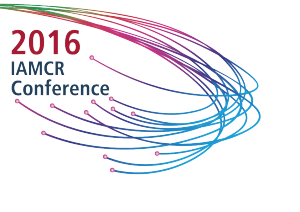Guest blogger:
Can Online Education Connect The World?
Education has long been seen as the avenue to improve living conditions and combat issues such as racism or ethnic conflict. With the spread of the Internet and new methods to earn a masters and doctorate, as well as vocational certifications, there is hope that many archaic and what some might call backwards lifestyles and beliefs can be eradicated around the world.
According to Michael Karnjanaprakorn, CEO of Skillshare, the prevailing theory among journalists, thinkers and learners in general is that a bottom-up, student-led revolution is occurring in education. More and more, students are setting their own courses and creating new fields of study and forms of education, including online education. Karnjanaprakorn claims that learners are taking ownership of their own educational advancements. The boundaries of education are slowly crumbling away.
One such boundary being blurred is that which separates student and instructor. Some students, in fact, are even teaching themselves, the thought being that by teaching oneself, each person is best equipped to determine his or her strengths and weaknesses.
Online education also breaks down the geographic and physical borders among learners across town or across the world. It enables learners to leverage social networking sites such as Facebook and Twitter to bounce ideas among one another to learn concepts that would otherwise be impractical to be taught. Since social networking provides a forum for learners to collaborate, it helps the geographic limitations fade away. It creates a potential for cooperation among individuals in various countries to thrive and helps them achieve a common educational goal.
Previously, withholding education from the masses in underprivileged countries and ignored communities is what has kept them under the thumb of a dictator, tyrant, or despot. With the advent of the Internet and the increasing ability to circumvent attempts to control shared information, citizens of such dictatorial countries now have the potential to improve their lives greatly and achieve goals which they thought were previously out of reach. The ability to communicate covertly is also a much easier task to accomplish thanks to the Internet. This further enables disadvantaged populations to improve their situation by working together in an educated manner.
The Internet is making online education an even easier method to connect the world because it reduces overall educational costs. Citizens of poorer countries might, in fact, benefit from online education because reference material is available online, most of it for free. And if one has a large amount of leisure time, he can simply read the material online or print it out and study it at his leisure. With the advent of online only schools, students located in, say, Hanoi, Vietnam, can still take classes from a virtual classroom in Cincinnati.
Based on all these factors, online education is certainly connecting the world by reducing costs, enabling people to teach themselves and collaborating with others, which helps everyone take advantage of the portability of education.
Linda Zabriske works at onlinegraduateprograms.com
 New PhD opportunities at the University of Leicester
New PhD opportunities at the University of Leicester Call for Abstracts: New Directions in Media, Communication and Sociology (NDiMS) Conference
Call for Abstracts: New Directions in Media, Communication and Sociology (NDiMS) Conference Ørecomm Team to Gather at the University of Coimbra
Ørecomm Team to Gather at the University of Coimbra “Communication and Social Change – A Citizen Perspective” Published
“Communication and Social Change – A Citizen Perspective” Published C4D Network to Sum Up Global Communication for Development Practice
C4D Network to Sum Up Global Communication for Development Practice Entering Media and Communication into Development Conferences?
Entering Media and Communication into Development Conferences? IAMCR Conference 2016: Communication for Development Highlights
IAMCR Conference 2016: Communication for Development Highlights Glocal Classroom Revisited – Storytelling & Social Change Leicester-Malmö
Glocal Classroom Revisited – Storytelling & Social Change Leicester-Malmö I EvalComDev International Conference: Call for Papers
I EvalComDev International Conference: Call for Papers Looking for Media and Communication in Development Conferences: Devres 2016
Looking for Media and Communication in Development Conferences: Devres 2016